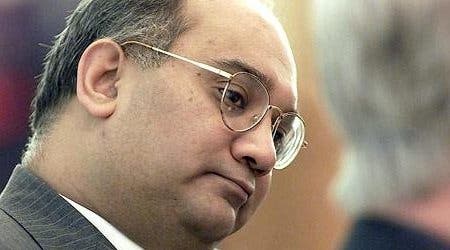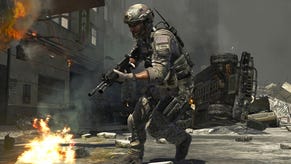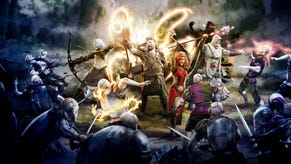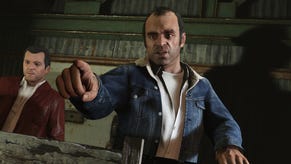Keith Vaz "deeply concerned" by Call of Duty: Modern Warfare 3
Tom Watson hits back.
Labour MP Keith Vaz has tabled an Early Day Motion in which he expresses concern about Call of Duty: Modern Warfare 3.
THERE MAY BE SPOILERS AHEAD.
The EDM (via MCV), proposed on 14th November, says MW3's London Underground sequence rekindles memories of the 7 July London bombings, and claims there is "increasing evidence" of a link between violent crimes and violent video games.
The EDM in full:
"That this House is deeply concerned about the recently released video game Call of Duty: Modern Warfare 3, in which players engage in gratuitous acts of violence against members of the public; notes in particular the harrowing scenes in which a London Underground train is bombed by terrorists, bearing a remarkable resemblance to the tragic events of 7 July 2005; further notes that there is increasing evidence of a link between perpetrators of violent crime and violent video games users; and calls on the British Board of Film Classification to take further precautions when allowing a game to be sold."
Fellow Labour MP Tom Watson disagrees with the EDM, however, and has put forward his own response, noting that "the game has an excellent user interface and challenges the gamers' dexterity as well as collaborative skills in an outline setting".
Watson "encourages the BBFC to uphold the opinion of the public that whilst the content of video games may be unsettling or upsetting to some, adults should be free to choose their own entertainment in the absence of legal issues or material which raises a risk or harm".
The BBFC said the section of the game that sees the player pursuing Russian terrorists through the London Underground is "far removed" from the July 2005 attack that resulted in the death of 52 people.
"Some comparison has been drawn between the action in the game and terrorist attacks on the London Underground in July 2005," the BBFC said. "However, a full examination of the game makes clear that the storyline is far removed from these real events, neither drawing upon nor resembling real terrorist attacks on the Underground.
"Nevertheless the location of the action in familiar London settings, both above and below ground, establishes a context within which the tone and impact of the work may, for some, be more unsettling, and upsetting, than in previous games in the series.
"The BBFC's decision to restrict the game to adults primarily reflects moments of strong violence, but also takes account of these contextual elements."
Modern Warfare 3 attracted controversy for a sequence showing a young girl and her mother being killed in an explosion in Westminster.
Co-developer Sledgehammer Games has defended this, saying the game is not "doing shocks for shock value".
"We wanted to show, certainly in some particular cases, we wanted to show the effect of war," explained creative director Bret Robbins.
"What happens if a modern American city gets attacked? What would that be like, what would you see? If you were walking down the street, what would happen?
"Civilians are part of that, innocent people are part of it unfortunately."
Modern Warfare 3's story takes place around the world, in a fictional World War 3 scenario. The world's most recognised cities are ravaged by terrorist attacks.
"How do you go about blowing up the world?" asked Robbins. "You just come up with scenes and moments that would make sense within the story. So you don't do it just for the sake of blowing everything up, just for the fun of it.
"Does this make sense? Should the characters actually be here at this time? Does this fit the plot? You want it to be exciting, but you also want it to make sense.
"It can't just be gratuitous," he added, "it can't just be fantasy. It needs to be real missions, things that you think could possibly happen, given the extraordinary circumstances that you're creating. So it's always walking that fine line of believability and insanity and crazy action."
Keith Vaz was criticised earlier this year when he tabled an "amateurish" early day motion titled "Video games and young people". It read:
"That this House welcomes the call by Shigero [sic] Miyamoto, creator of Super Mario, for people to drop their joypads and venture out into the sunlight once in a while; recognises that video games have addictive properties; notes that children flourish when they undertake a variety of extra-curricular experience; further notes the current Hungarian EU Presidency priority of protecting minors from harmful audiovisual media content in media legislation; is concerned about the potential impact of violent video games on those under 18; and calls on the Government to ensure the purchase of video games by those under 18 is carefully controlled and that parents are encouraged to limit the amount of time children spend on video games."
Vaz is of course no stranger to video game controversy, and has long been a strong anti-video game campaigner.
He has criticised a number of video games, including Manhunt, Manhunt 2, Bully and Counter-Strike.
But in January Vaz told Eurogamer: "I've never been against games".
"I've been against violent games that are able to fall into the hands of young people who are perhaps not able to understand the implications of what they're doing," he said.
















